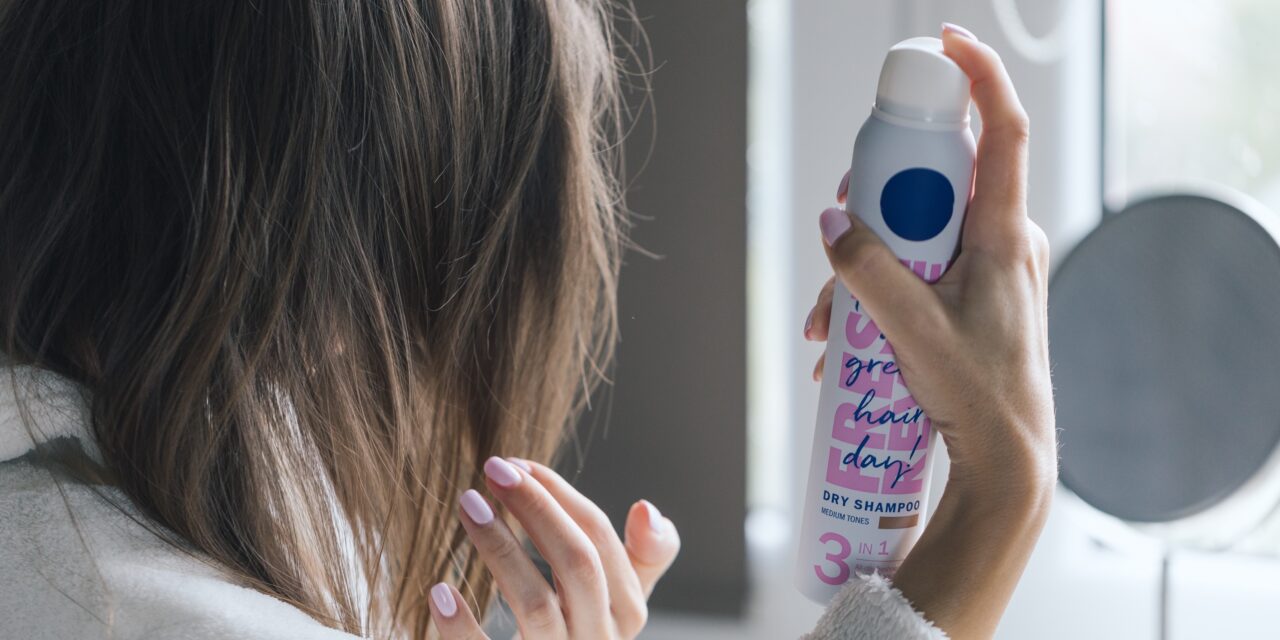If you have dry shampoo in your bathroom or are considering picking up dry shampoo, take note of the recall details below.
Your dry shampoo might not be safe.
After a voluntary recall of its dry shampoo products, Unilever is in the news. The shampoo maker recently admitted its products might contain unsafe amounts of the chemical benzene. Benzene is hazardous to human health, especially if it accumulates in large amounts. Exposure to elevated levels of the carcinogen has the potential to cause cancer. Furthermore, an extended period of exposure to high levels of benzene is also a direct threat to human health.
The benzene buildup in Unilever’s dry shampoo products has spurred the company to recall over a dozen of its aerosol products voluntarily. According to Unilever company representatives, the dry shampoo’s excessive chemical levels constitute a legitimate carcinogen. Benzene typically does not prove carcinogenic unless exposure occurs at high levels for a lengthy period. However, every Unilever customer should be aware of the recall and take the necessary action.
Unilever has a Benzene problem.
The dry shampoo recall issued by the consumer goods specialist is the latest in a string of aerosol product recalls. The company’s deodorants and sunscreens have also been recalled in recent years. In addition, all Unilever aerosol dry-form shampoos manufactured before October 2021 have been recalled. The Unilever dry shampoo brands in question are:
- TRESemme
- Rockaholic
- Suave
- Dove
- Nexxus
- Bed Head
The recall applies to Unilever dry shampoo products sold in the United States. Though a Unilever public relations statement points out that they have not discovered any adverse events relating to dry shampoo, the company issued a recall out of an abundance of caution.
Unilever’s spokesperson insisted the company proactively paid for an objective evaluation of the dry shampoo’s health hazards. The investigation revealed daily exposure to benzene when using the affected products might not cause health issues. However, the products in question were recalled. Unilever representatives encouraged consumers to halt the use of its aerosol dry shampoos. Furthermore, the company went to the extent of paying refunds directly to customers for the products.
The threat posed by Benzene.
Trace amounts of benzene in consumer products are unlikely to pose a significant health hazard. However, the accumulation of the chemical and/or extended exposure has the potential to prove carcinogenic. Benzene, a light yellow liquid or even translucent in hue, has a sweet odor and can catch fire. The CDC quickly points out that benzene is one of the most commonly used chemicals in consumer products sold in the United States. In addition, benzene is the foundation upon which other chemicals and materials are often added to create consumer products, including dry shampoos such as those made and sold by Unilever.
To the surprise of most consumers, benzene is also used as a component of the following:
- Crude oil
- Synthetic fibers
- Nylon
- Resin
- Some plastics
It is also interesting to note that benzene is a component of pesticides, detergents, dyes, and lubricants. Though small amounts of the chemical ingested when breathing are unharmful, exposure to a significant amount of benzene has the potential to cause serious health problems.
Benzene is used in dry shampoos as a propellant that helps move the product out of the spray can. Though Unilever deserves credit for proactively addressing the problem with suppliers, the bottom line is that some consumers might have been exposed to an unsafe chemical level. The underlying problem might lie in the refinement of the chemical. If the process used to refine butane is flawed, there is potential contamination in consumer products such as dry shampoos.
It is possible that the dry shampoo cans were not accurately measured or tested for benzene levels after manufacturing at the factory. Suppose even a small number of such cans passed through quality control without proper inspection. In that case, there is sufficient reason for a recall. It is also possible that the benzene formation results from a reaction within the can. Factory workers might have overlooked the chemical simply because it was absent when the cans were initially manufactured.
The FDA is adamant that extended exposure to benzene can cause significant health problems, including blood disorders such as leukemia. Furthermore, the chemical can potentially reduce the level of red blood cells within the bone marrow, ultimately causing anemia. Benzene can compromise the body’s immune system by altering antibodies within the blood. Aside from causing such significant health problems, there is also the potential for extended exposure to benzene to result in the following:
- Confusion
- Dizziness
- Excessive fatigue
- Tremors
- An irregular heartbeat
We would be remiss not to point out that some women subjected to elevated levels of benzene suffered irregular periods. Some such unfortunate consumers even suffered a reduction in ovary size. In addition, medical researchers are currently working to determine if exposure to benzene compromises the health of developing fetuses.
How to proceed after the dry shampoo recall.
If Unilever’s dry shampoo is in your bathroom closet or elsewhere in your home or place of work, seek financial remuneration from Unilever or the store where the product was sold. It is also in your interest to temporarily avoid aerosol products until the threat of benzene exposure is eliminated. Pivot to alternative, benzene-free products in the meantime, and you will rest easy knowing you have done everything possible to avoid exposure to potentially hazardous benzene. Stay tuned as additional details about the Unilever dry shampoo recall are revealed.
















